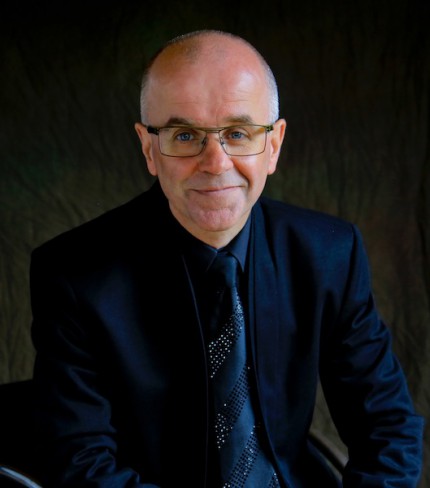Bell, Grant Park Chorus serve up a varied, delightful Shakespeare tribute
It’s been a brutal weekend for weather but a great one for two of Chicago’s top three choruses.
The Chicago Symphony Orchestra Chorus put the seal on the soaring performance of Mahler’s Second Symphony led by James Levine in his triumphant return to Ravinia Saturday night. And Sunday afternoon Christopher Bell directed his Grant Park Chorus in a program of Shakespeare settings that likewise offered a highlight of the summer season.
The a cappella program, performed at the Columbus Park Refectory on the west side, marked this 400th anniversary year of Shakespeare’s death.
Musical settings of the playwright’s stanzas are countless, of course. In his engaging introduction, Bell said his criterion for inclusion in this program was simple: “I have to like it.” Fair enough, since there wasn’t a clinker in the bunch and the delightful program found a graceful balance between the serious and whimsical, much like the Bard’s oeuvre itself.
Unison fortissimos were a bit overwhelming at times in the intimate space but one came away with renewed admiration for the gifted Grant Park singers. Even heard up close and personal, the ensemble singing was clear and precise with intonation nearly immaculate throughout the unbroken one-hour concert.
Thomas Morley’s “It was a Lover and his Lass” was a fine opener, aptly vernal and sung with spirit and buoyancy. Considering the day’s godless humidity, Thomas Arne’s “Blow, Blow, Thou Winter Wind” was a welcome sentiment making one long for a cooler season.
Ralph Vaughan Williams’ Three Shakespeare Songs of 1951 are among his most finely crafted works. The bell tolling of high voices in “Full Fathom Five” set against the nautical weight of the men is especially striking, as was the beautifully rendered decrescendo at the song’s coda. “Over Hill, Over Dale” was fleet and effervescent, painting the sprite-like fairy milieu of Midsummer Night’s Dream, and “The Cloud Capp’d Tower” closed the mini-cycle on an eloquent note.
The Three Shakespeare Songs by Finnish composer Jaakko Mäntyjärvi were similarly well crafted and given stylish advocacy, from the melancholy of “Come Away, Death” to the contrapuntal pastoral lilt of “Lullaby.” Bell’s singers had great fun portraying Macbeth’s hags in the utterly original finale, “Double, Double, Toil and Trouble” with its witchy shouts, steep dynamic leaps and emphatic tutti foot stomp.
Few composers have devoted as much attention to Bardic texts as Matthew Harris, who has written six–count ’em–six books of Shakespeare Songs to date. The three selections from Book VI were a wonderful discovery. The singers fully encompassed the humor of “When Daises Pied” as surely as the lovely balladry of “Fear No More” and syncopated exuberance of “Where the Bee Sucks, There Suck I”.
Two chorus members stepped out with flamboyant solo turns. In Harris’s revisionist take on “Who is Sylvia?” mezzo Corinne Wallace-Crane was a sassy, big-voiced gospel presence, sashaying down the center aisle and flirting with audience members. Tenor Hoss Brock had fun with Kevin Olson’s Latin retooling of “A Summer Sonnet” crooning the bossa nova-isms in idiomatic samba style.
Nancy Wertsch’s A Shakespeare Suite was another enjoyable sampling from a too-little-known composer. The Grant Park singers brought full fervor to her lively setting of “It was a Lover and his Lass,” and offered a warm account of the lovely “O Mistress Mine” as well as imbuing “Daffodils” with mellifluous charm. In John Tavener’s “Fear no More” the singers conveyed the somber spiritual glow of the composer’s Orthodox style.
Puck’s final speech from A Midsummer Night’s Dream (“If We Shadows Have Offended”) made an apt closer to the afternoon in Bernard Hughes’ graceful setting.
The program will be repeated 7 p.m. Tuesday at the South Shore Cultural Center. gpmf.org
Posted in Performances





